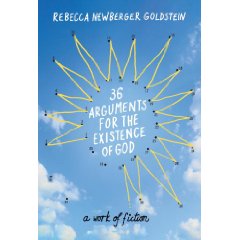

I’d often find myself pondering which would be the preferable state of affairs regarding Gödel, anonymity or misinterpretation. Among “humanist” intellectuals who do invoke Gödel’s name, he is often associated with the general assault on objectivity and rationality that gained such popularity in the last century. Which brings me to the crux of your question. I say in the book that Gödel is the most famous person that you probably haven’t heard of, and that if you’ve heard of him you probably have, through no fault of your own, an entirely false impression of what it was he did to the foundations of mathematics.

So, by and large, Gödel – unlike his soul-mate, Einstein – is strangely unknown, and this anonymity is in itself something I wanted to address. Sometimes mentioning the title of Douglas Hofstadter’s popular book, “Gödel, Escher, Bach,” brought on a faint gleam of recognition. Rebecca Goldstein: I’m not sure that there is a “widespread view of Gödel.” While I was writing “Incompleteness” and people asked me what I was working on these days, I usually drew a blank stare when I said his name. Is this a widespread view of Gödel? Is it a view held solely by people who don’t actually understand Gödel’s work? Are there any mathematicians or logicians who think Gödel is a social theorist or a postmodernist? Paul Gross and Norman Levitt examine literary critic (or ‘theorist’) Katherine Hayles’ musings on Gödel in Higher Superstition: ‘Hayles then cites the Gödel incompleteness result as the deathblow to the Russell-Whitehead program…This is intended to figure the movement away from post-Enlightenment ideals of “universal” knowledge to postmodern skepticism…’ Sokal and Bricmont go on to quote more such abuses, from Debray, Alain Badiou, and Michel Serres, who wrote, ‘Régis Debray applies or discovers as applicable to social groups the incompleteness theorem valid for formal systems…’ Readers at Science Daily call Incompletenessīutterflies and Wheels: Alan Sokal and Jean Bricmont call chapter 11 of their book Fashionable Nonsense: Postmodern Intellectuals’ Abuse of Science: ‘Gödel’s Theorem and Set Theory: Some Examples of Abuse.’ They give a quotation from Régis Debray as an epigraph: ‘Ever since Gödel showed that there does not exist a proof of the consistency of Peano’s arithmetic that is formalizable within this theory (1931), political scientists had the means for understanding why it was necessary to mummify Lenin…’ The chapter’s first sentence starts, ‘Gödel’s theorem is an inexhaustible source of intellectual abuses…’ Rebecca Goldstein has a new book out: Incompleteness: The Proof and Paradox of Kurt Gödel.


 0 kommentar(er)
0 kommentar(er)
